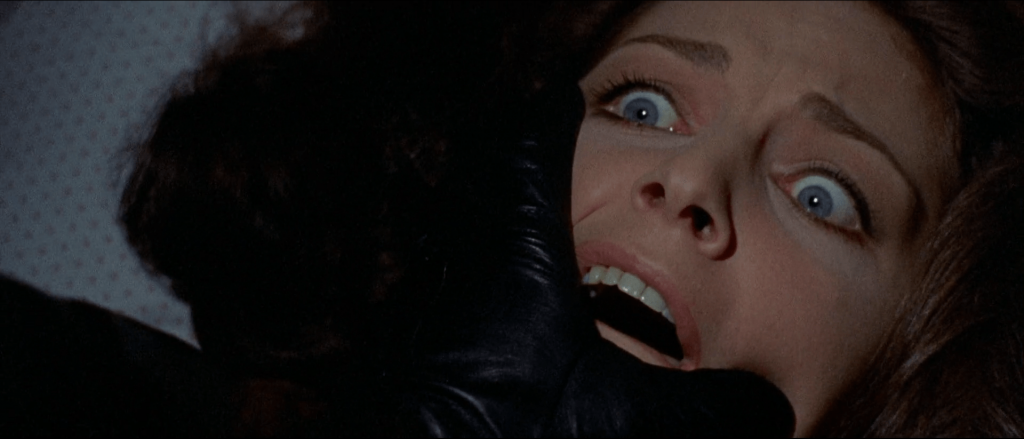If you’re familiar with the name Dario Argento, it‘s most likely through his stylishly supernatural horror film Suspiria. That 1977 film, about an American ballet student who gets caught up in an otherworldly conspiracy at a German dance academy, was like a glossy magazine soaking in a pool of blood. Slick on all counts.
But it wasn’t Argento’s first film, or his first to marry almost over the top violence with a filmmaking flair that walked the border between garish and grandiose. Seven years before Suspiria made him an international star, Argento made his mark in his native Italy with The Bird with the Crystal Plumage, a murder mystery that established the Argento style early on.
American television actor Tony Musante stars as Sam, an American expat writer in Rome who is witness to a vicious attack in an art gallery. The assailant escapes, but is identified by the police as the serial killer terrorizing the city. Obsessed with the crime and tormented by the idea that something he saw might hold the clue to solving the string of murders, Sam begins aiding the police investigation. As he follows the trail of murdered women and interviews those that knew them, he comes across a macabre painting that holds a dark clue to the mystery.
Adding to Argento’s already assured style is the music of the legendary Ennio Morricone and cinematography of Vittorio Storaro (Apocalypse Now, Last Tango in Paris). A landmark in the “giallo” genre — named after the distinctive yellow covers of the pulp crime stories published in the Mussolini era, when the dictator banned the import of American noir — Argento’s debut is given new life in this new 4K-restored edition. For a first film made in the 70s, Crystal Plumage has held up surprisingly well. If you’re a fan of Suspiria — heck, if you’re a fan of just about any kind of murder/thriller from the last four decades — you owe it to yourself to peek between your fingers.
The Bird with the Crystal Plumage, October 26th, 9:45 p.m., Amherst Cinema, 28 Amity St., Amherst
Amherst Cinema brings in another older classic this month when it screens John Carpenter’s Christine, based on the book by Stephen King, on Halloween night. Pitch-perfect early 80s King — which is to say both slightly absurd and absurdly effective — the story reaches back to the 1950s, when a fresh Plymouth Fury rolls off the assembly line in Detroit. Before it even leaves the factory, it (she?) starts claiming the lives of those nearby.
Flash forward to 1978, and misfit California teenager Arnie Cunningham (Keith Gordon) becomes the car’s latest owner. As he slowly rebuilds the battered car, Cunningham becomes increasingly obsessed; he begins dressing like a 50s greaser, and develops a stronger connection to his car than to those around him. The problem: Christine feels the same way, and is all too happy to help Arnie get rid of all those troublesome human relationships.
Screening as part of the cinema’s Science on Screen series, the film will be accompanied by a talk from Joydeep Biswas of the College of Information and Computer Sciences, UMass Amherst. Dr. Biswas will draw on his work with autonomous mobile robots (with an assist from some sci-fi movie scenes) to discuss the “radical future” of self-driving cars. What does a machine with a “mind of its own” really mean when that machine is expected to operate in spaces shared with humans? Christine may be a work of fiction, but the future may turn out to be stranger still.
Christine, October 31, 7:00 p.m., Amherst Cinema, 28 Amity St., Amherst
Jack Brown can be reached at cinemadope@gmail.com



